Introduction
Are Parakeets Friendly: Parakeets, often referred to as budgerigars or simply “budgies,” are charming and colorful little birds that have captured the hearts of bird enthusiasts and pet owners around the world. These small parrots are known for their vibrant plumage, cheerful personalities, and delightful chirping, making them a popular choice among those seeking avian companionship. This query speaks to the desire for a pet that not only brightens one’s home with its beauty but also companionship and affection. The friendliness of parakeets can vary from bird to bird, but they are generally known for their sociable nature.
These small parrots have a reputation for forming strong bonds with their human caregivers when given the opportunity to do so. With patience, love, and proper care, parakeets can become affectionate and loyal companions. They often enjoy interacting with their owners, perching on shoulders, and even mimicking speech or whistling tunes. Parakeets beak are intelligent birds that thrive on mental stimulation and social interaction. They are quick learners and can be trained to perform simple tricks or respond to commands. This intelligence, combined with their curiosity, makes them highly engaging pets.
Many parakeet owners find joy in teaching their feathered friends new tricks or with toys and puzzles to keep their minds active and engaged. While parakeets have the potential to be friendly and affectionate pets, it’s essential to that building a strong bond with these birds requires time and effort. Like any pet, they have individual personalities, and some may be more naturally inclined towards friendliness than others. Proper care, a suitable environment, and consistent interaction are key factors in nurturing their friendly and sociable tendencies.
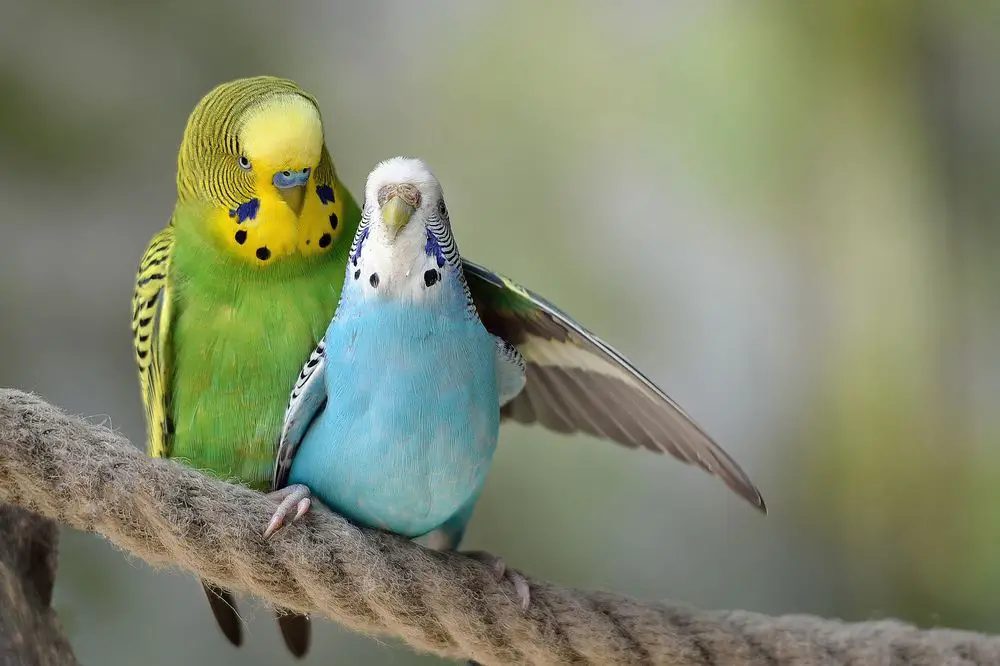
Are parakeets friendly to humans?
These small-to-medium sized birds make wonderful family pets due to their naturally affectionate behavior and playful disposition. Whether this is your first time raising a parrot or not, you’ll find they make wonderful companions.
Initially, parakeets may be shy and skittish when brought into a new environment. However, with patience and gentle handling, they can become quite friendly and even affectionate. Spending time around your parakeet, talking to them in a soft, soothing voice, and offering treats can help them become accustomed to your presence.
Parakeets can form strong bonds with their human caregivers. Over time, they may learn to trust and enjoy human companionship. Hand-fed or hand-raised parakeets tend to be more receptive to human interaction and can become very friendly with their owners.
Parakeets are known for their playful nature. They often enjoy interactive toys, mirrors, and even games with their human companions. Regular interaction and engaging activities can help strengthen the bond between parakeets and their owners.
Are parakeets friendly pets?
They love to interact with their owners. They’re extremely social. In fact, in Australia, where they’re native, they live in flocks of thousands of birds and they really bond closely to their owners as pets.
Parakeets are inherently social birds. In their native habitat of Australia, they thrive in large flocks, engaging in various social interactions. This sociable disposition naturally extends to their interactions with humans when kept as pets. While parakeets may start off shy and wary in a new environment, they have the potential to become remarkably friendly and affectionate with time, patience, and positive interactions. The taming process involves getting your parakeet accustomed to your presence, voice, and touch.
With consistent effort, they can learn to trust and enjoy human companionship. One of the endearing qualities of parakeets is their playful nature. They relish interactive toys, mirrors, swings, and even games with their human caregivers. This playfulness not only entertainment for the birds but also strengthens the bond between parakeets and their owners.
Parakeets are renowned for their chatty and vocal nature. They can mimic human speech and a wide range of sounds, making them entertaining companions. Their ability to communicate through chirps, whistles, and chatters adds to the liveliness of any household. With time and proper care, many parakeet owners report forming strong and affectionate bonds with their birds. Hand-fed or hand-raised parakeets, in particular, tend to be more receptive to human interaction and often exhibit a high degree of friendliness.
Do you need 2 parakeets?
As a general rule, a pair of parakeets will be happier than a single bird. All your bird needs is a companion – which means another bird, or you – and it will be content. If you only keep one bird, you will need to be its friend and companion.
Perhaps the most significant advantage of keeping two parakeets is companionship for each other. They groom each other, share food, and engage in playful interactions. Having a companion can help alleviate loneliness and boredom, especially when the owner is not present.
Parakeets are intelligent birds that require mental stimulation to stay happy and healthy. When kept in pairs, they entertain each other, engage in vocal communication, and explore their environment together. The presence of another parakeet can encourage natural behaviors such as foraging and problem-solving.
A pair of parakeets can offer emotional support and reduce stress for each other. This can be particularly during stressful situations such as trips to the veterinarian or changes in their environment. Parakeets are known for their ability to mimic sounds, including human speech. When kept in pairs, they may interact with each other through vocalizations, creating a dynamic and entertaining atmosphere.
Can I touch a parakeet?
Your bird should be a part of your family and you should spend some one-on-one time with him every day, but that doesn’t necessarily mean holding and stroking the bird. Some birds just don’t like human hands on them; they love to hang out and play with their people, but prefer not to be physically touched.
When you first bring a parakeet home, give them time to acclimate to their new environment. Allow them to observe you from a distance and get used to your presence. Start by offering treats through the bars of the cage to associate your presence with positive experiences. This helps the parakeet associate you with food and builds trust.
Once your parakeet becomes more comfortable, you can begin hand-feeding treats or offering millet spray while gently extending your hand towards them. Use slow and deliberate movements. Teach your parakeet the “step-up” command, encouraging them to step onto your finger or hand when asked. Reward them with treats and praise for compliance.
Pay attention to your parakeet’s body language. If they appear frightened, agitated, or uncomfortable, give them space and avoid touching them until they relax. When handling your parakeet, approach slowly and avoid sudden movements. Gently support their body with your hand to prevent injury.
Do parakeets get aggressive?
Parakeets are rarely aggressive by nature: their burst of temper will come and go quickly. They may fight over food, and will often clash briefly over friends, toys or territory; but all of this is normal in parakeet society.
Proper socialization from a young age can reduce the likelihood of aggressive behavior. Spend time with your parakeet, offer treats, and engage in gentle handling to build trust. Minimize sources of stress in your parakeet’s environment. Keep their cage in a quiet area, away from loud noises and predators.
If aggression is related to hormonal changes, consult with an avian veterinarian for guidance on managing and mitigating these behaviors. Use positive reinforcement techniques to reinforce desired behaviors and discourage aggressive actions. Reward your parakeet for calm and non-aggressive behavior.
Regular check-ups with an avian veterinarian can ensure your parakeet’s health and address any medical issues that might contribute to aggression. If territorial aggression is a concern, consider providing more than one perch or cage area to reduce competition for space.
Can my parakeet sleep with me?
Even if there were no physically dangerous aspects to sharing your bed with your bird, you run the risk creating a poorly adjusted and mentally insecure parrot. Please don’t sleep with your bird. We don’t want you to be one of the grieving owners that Wendy gets a call from one day.
Parakeets are diurnal birds, meaning they are most active during the day and require a good amount of sleep at night. They typically need around 10-12 hours of uninterrupted sleep for their well-being. Parakeets are sensitive to changes in light and darkness, and they often rely on the natural day-night cycle to regulate their sleep.
Parakeets prefer a quiet and undisturbed sleeping environment. Sudden noises or disturbances during their sleep can cause stress and disrupt their rest. The primary concern when considering whether your parakeet can sleep with you is their health and safety. Sleeping in the same bed with your parakeet can pose risks, such as accidentally rolling over on them or causing injuries during the night.
Parakeets can carry microscopic parasites or allergens that may affect human health. Having your parakeet sleep in close proximity to your face could pose health risks. Sharing a bed with your parakeet may lead to disturbances in their sleep due to your movements or noises. This could affect their overall well-being.
Should I let my bird kiss me?
Psittacosis, or parrot fever, is a bacterial disease that can exist in wild and captive birds. Humans can contract the potentially dangerous disease from direct contact with infected animals. Practising good hygiene and keeping birds away from your mouth is recommended.
Birds may touch or gently nibble your skin or clothing with their beaks. This is often a sign of affection and bonding. In some cases, birds may regurgitate food and offer it to you as a sign of love and nurturing. This behavior is common in some parrot species. Birds may engage in preening or grooming each other as a sign of bonding. When they groom you, it’s a way of showing affection.
Some birds, especially parrots, are excellent mimics. They may “kiss” you by imitating the sound of a kiss or other affectionate noises. Be aware that even a gentle nibble from a bird can be strong and potentially painful. Consider the size and strength of your bird’s beak and be cautious, especially with larger parrot species.
Birds can carry diseases, including avian diseases and zoonotic illnesses that can be transmitted to humans. Be aware of the health of your bird and practice good hygiene. Not all birds enjoy or engage in “kissing” behavior. Some may be more reserved, while others may be more affectionate. Respect your bird’s individual preferences.
Can I cuddle with my bird?
There are many other ways to interact with your bird such as teaching him behaviors and words. In the long run, by avoiding excessive cuddling type contact, your bird will have better behavior and you will not encounter as many behavior issues as he or she matures.
If your bird is not accustomed to physical contact, start slowly by offering your hand or finger for them to step onto. Gradually build trust through positive reinforcement and patience. Always respect your bird’s boundaries. If they show signs of discomfort or stress, such as fluffing up, squawking, or trying to move away, stop the cuddling attempt immediately.
Pay close attention to your bird’s body language during cuddling attempts. Look for signs of relaxation, such as closed eyes, relaxed feathers, and gentle vocalizations. Some birds may enjoy being gently stroked or petted on their heads, necks, or backs. Avoid touching sensitive areas, such as the vent (cloaca) area, as this can be uncomfortable for them.
Allow your bird to initiate physical contact. If they approach you for cuddling, it’s a positive sign that they are comfortable with the interaction. Birds, like all animals, have different moods and may not always be in the mood for cuddling. Be attuned to their cues and only cuddle when they are receptive.
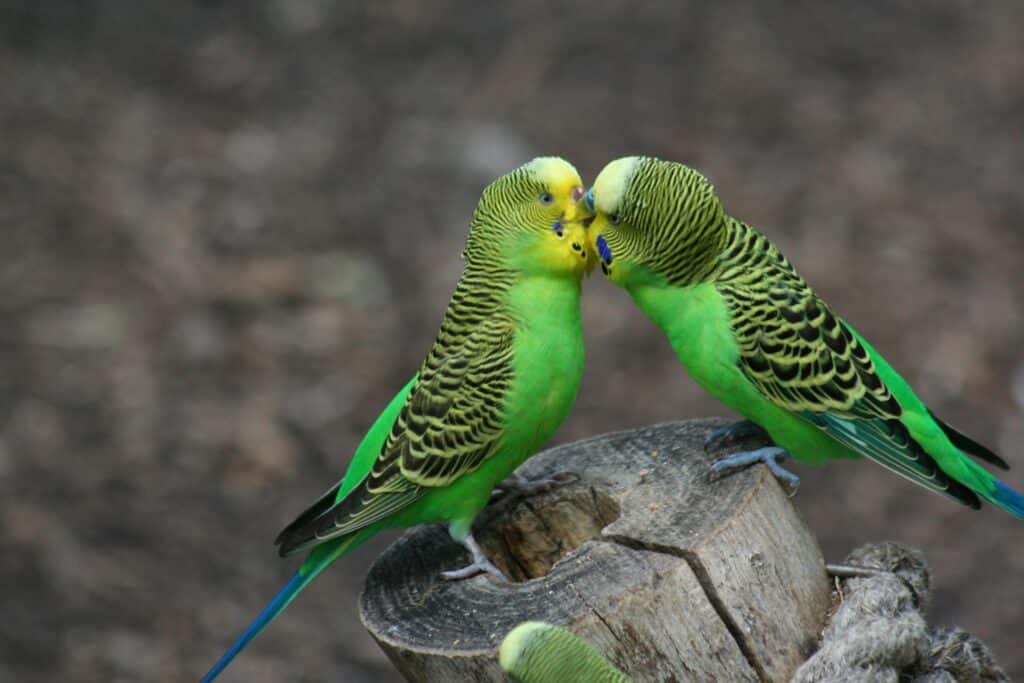
Conclusion
In parakeets, friendly finds its answer in the fascinating and multifaceted world of these small, colorful parrots. Parakeets possess the potential for friendliness and social bonding that can rival even the most affectionate of pets. However, the extent to which they display these qualities depends on various factors, including their individual personalities, the care they receive, and the effort invested in building a connection with them. Parakeets, with their inquisitive nature and high intelligence, thrive on human interaction and mental stimulation. They are quick to learn and adapt to their environment, which makes them not only engaging companions but also trainable pets.
Many parakeet owners find great joy in teaching their birds tricks, watching them mimic sounds, and even developing their unique methods of communication. Nonetheless, it’s crucial that parakeets, like any other living beings, are individuals with their own parakeets characteristics personalities. Some may naturally lean towards being more outgoing and sociable, while others may be more reserved. This variation adds to the charm of these birds, as each parakeet comes with its own unique set of traits and quirks. To cultivate a friendly and affectionate relationship with a parakeet, patience, consistency, and dedication are paramount. Building trust takes time, but the rewards are worth the effort.
Regular interaction, a comfortable and stimulating environment, and a well-balanced diet all play pivotal roles in fostering a strong bond between humans and parakeets. Whether you are already a proud parakeet owner or considering inviting one of these delightful birds into your life, understanding their potential for friendliness is essential. Parakeets have the capacity to bring joy, laughter, and companionship into your home, enriching your daily life with their vibrant personalities and colorful plumage. The world of parakeet ownership offers a fulfilling and rewarding experience for those who are willing to invest the time and affection necessary to build a lasting and loving relationship with these feathered wonders.

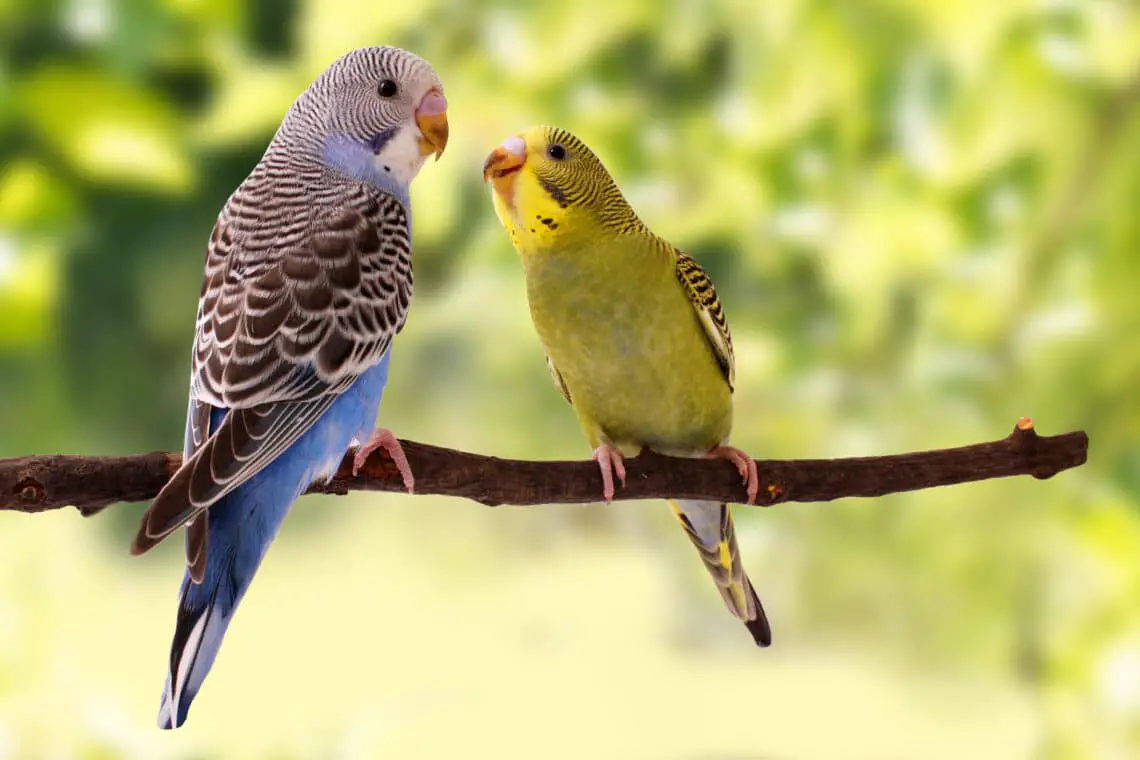
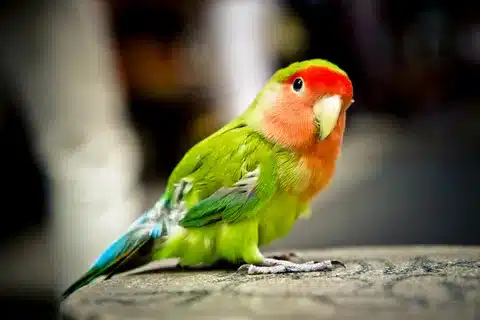
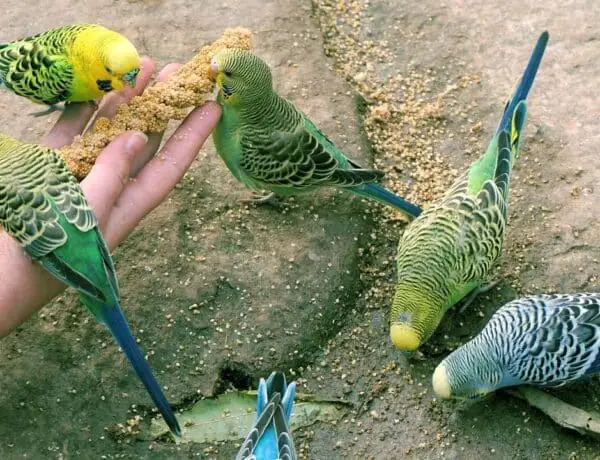
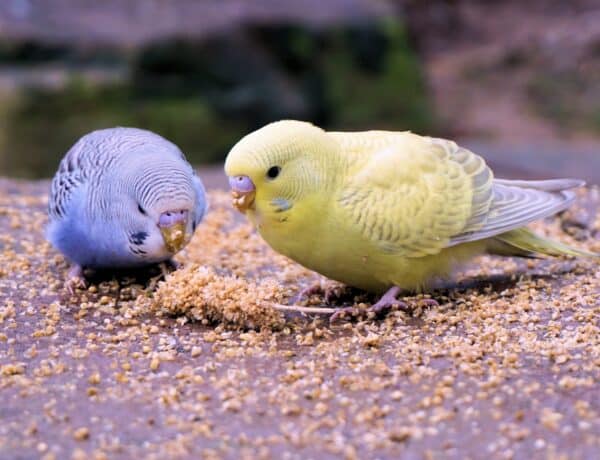
No Comments